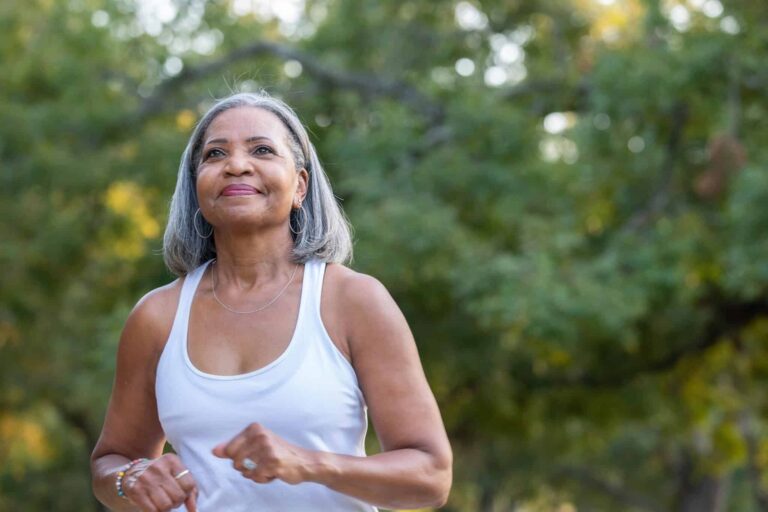Staying physically active is an important part of staying healthy and connected, as is treating your hearing loss! Both of these are especially important as we age.
According to the National Institute on Deafness and Other Communication Disorders (NIDCD), “Nearly 25% of those aged 65 to 74 and 50% of those who are 75 and older have disabling hearing loss.”
No matter the age you are when you first start experiencing hearing loss, seeking treatment with hearing aids can help you process sounds better in any environment, making it easier to lead an active and engaged life.
Is It Safe to Exercise with Hearing Aids? 
If you are a new hearing aid user, you may be wondering if it’s safe to exercise while wearing them. The answer is a resounding yes!
Not only is it safe, but it’s highly recommended. It’s helpful to be able to communicate with your teammates when playing a pickup basketball game in the park or hear what your fitness instructor is telling you to do in class at the Bees Landing Recreation Center.
It can also improve your safety by making sure you hear important noises like oncoming traffic or sirens when you’re out jogging or cycling through Charleston.
Lastly, if you have hearing aids equipped with Bluetooth®, you can stream music or your favorite podcast directly into your device while you exercise, providing clear sound and helping the time fly by.
Protect Your Hearing Aids While Staying Active
While there are numerous benefits to working out with hearing aids, it’s essential that you take the proper steps toward protecting your device so that they continue to work its best. You can do this by:
- Using a hearing aid cord or clip to prevent them from falling out and potentially being stepped on while you are exercising.
- Using a hearing aid sleeve or sweatband to help minimize the amount of moisture your device is exposed to as your body sweats more.
- Take your hearing aids out and wipe them off after you exercise. Leave them out if you’re going to shower right after, and make sure to dry your ears thoroughly before putting them back in.
- Sticking to a nightly hearing aid cleaning routine to avoid the buildup of sweat, earwax and other debris.
- Investing in a hearing aid drying box or dehumidifier to help keep your device safe and dry while you sleep.
To learn more or to schedule an appointment with one of our experts, call Charleston ENT & Allergy today.
